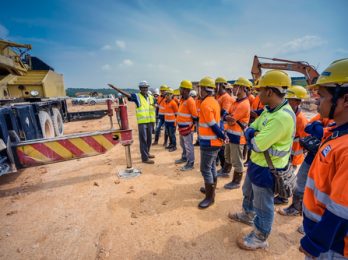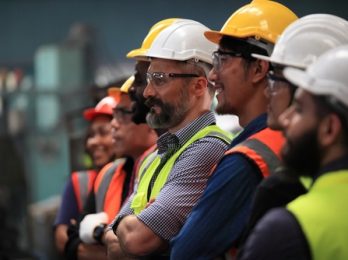Customized English training is available for most major industries. Specifically talking about the hospitality industry, language training can be so beneficial for employees and corporations alike. For example, English courses for employees provide lifelong transferrable skills. For the employer, corporate English courses can improve communication, the overall working environment and productivity. Whether you own or manage a hotel, casino, or a transportation business- there are always things we can do to improve communication.
Especially for the hospitality industry, that sees travelers from all corners of the world, communication is essential. You want to make sure your employees communicate with each other and your customers. You need to trust that they can thrive in any situation that presents itself. Working in the hospitality industry often means private events, coordinating tourist activities, and sharing information with guests in a meaningful way. And especially in this line of work, every new day is different than the one before. So you and your leadership team need to trust that your employees can communicate in any situation.
When we say our online English classes are fully customizable we mean it. Maybe you have several employees who need to need to improve their pronunciation but you want the majority to improve their vocabulary for their reception desk positions. We are able to work with you to devise a corporate English language course that meets your specific business objectives in a realistic way for your employees to learn. English courses for companies can even focus on industry specific vocabulary! Here's some examples...
Read more
Customized English Training For The Hospitality Industry






